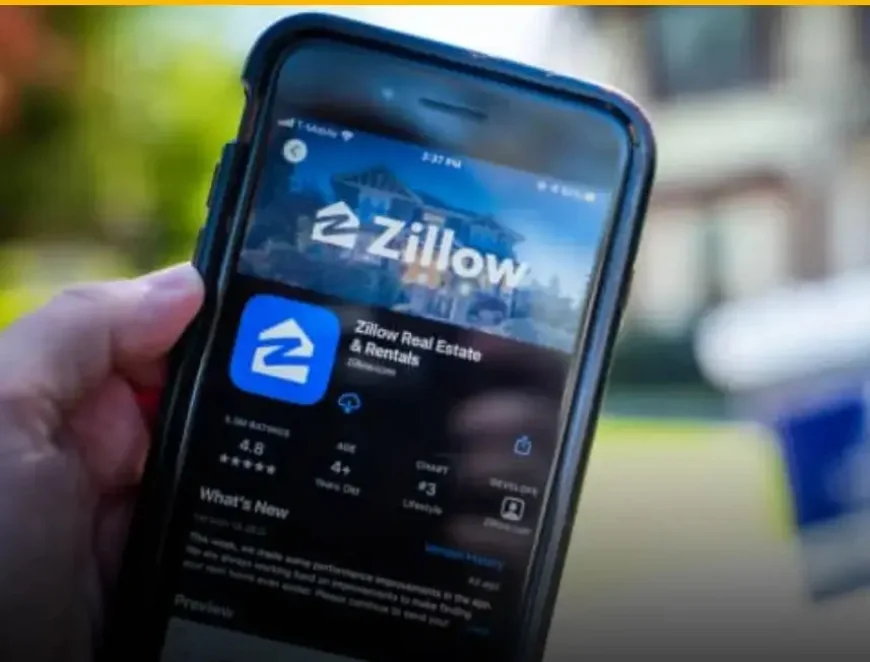How Zillow Transformed the Real Estate Market
With nearly 250 million monthly visitors, Zillow is the most widely used real estate portal in the United States.

It is one of the few online real estate platforms that has transformed the way Americans buy, sell, and rent homes.
The company offers a free mobile and web app that provides vital information about approximately 165 million homes. Previously, this listing data was only available to real estate agents through the industry's Multiple Listing Services system.
Zillow also offers innovative products like the "Zestimate," a machine learning algorithm that estimates home value. According to Zillow, this feature has an average error rate of 2% for active listings and 7.1% for off-market homes.
According to a research paper published in 2023 by researchers at New York University, the Zestimate can increase seller profits by 4.16% because the tool allows sellers to be more patient, setting higher prices, and then waiting for buyers who truly value the property.
Zillow earns money by generating leads for real estate agents on its platform. If an agent converts that lead into a sale, Zillow charges up to 40% of the real estate commission.
″[The agent] will bid on a specific zip code to try and win a certain number of leads, and then it’s on them to go and convert those leads into successful transactions and customers,” said Nikhil Devnani, senior U.S. internet analyst at global equity and research firm Bernstein.
According to data from the U.S. Census Bureau and the Department of Housing and Urban Development, the average home in the U.S. sold for $410,800 in the second quarter. In the U.S., a buyer's agent's commission is traditionally 3% of the home's sales price, or about $12,324 based on that average price. In this case, Zillow's fee would be about $4,930—if the lead was generated using Zillow's tools.
“If we can help more of those transactions happen, then we participate in the revenue in that transaction and we make more money,” said Zillow CEO Jeremy Wacksman in an interview with CNBC.
In 2024, Zillow reported annual revenue of $2.2 billion. Residential real estate activities, including lead generation, accounted for 71% of its revenue. Zillow also has a mortgage financing business called "Zillow Home Loans" and a rental advertising business.
Other online real estate portals and brokerages have criticized Zillow's strong position in the industry.
Competing real estate firm Compass has filed a lawsuit challenging Zillow's listing standards, which require sellers to list homes on Zillow within one business day of their listing appearing on the industry's MLS system—or risk being unable to list them on Zillow.
“They’re banning any agent and their seller who doesn’t list on Zillow in 24 hours. It’s like Amazon saying if you don’t give me your listing so I can monetize it and sell it for a 40% referral fee, I’m going to ban you,” said Compass CEO Robert Reffkin on CNBC’s “Squawk on the Street” in July.
Zillow and Compass will meet in court this month to present evidence for a preliminary injunction. Zillow reiterated in a note to real estate professionals in September that if a property is marketed to some buyers, it should be marketed to all buyers.
In September, the Federal Trade Commission filed an anti-competition lawsuit against Zillow and its competitor, Redfin, over a partnership between the two companies that was formed earlier this year.
The two companies had agreed to syndicate Zillow's rental ads on Redfin.com. Zillow paid Redfin $100 million as part of the agreement, and Redfin subsequently eliminated its multifamily advertising department and laid off its sales staff.
In October, attorneys general from five states filed a similar lawsuit, alleging that the agreement would result in "near-complete consolidation" in the rental listing market, which could increase prices for apartment owners.
“Those apartment owners will then try to pass those costs on to the average renter,” said Arizona Attorney General Kris Mayes in an interview with CNBC.
In response to complaints from the FTC and state attorneys general, Zillow stated that it is increasing fee transparency and investing in tools to streamline and streamline rentals for both tenants and housing providers.
A Redfin spokesperson said the company disagrees with the FTC's allegations and that Redfin's current number of advertising customers cannot justify the cost of maintaining its rental sales team.
What's Your Reaction?
 Like
0
Like
0
 Dislike
0
Dislike
0
 Love
0
Love
0
 Funny
0
Funny
0
 Angry
0
Angry
0
 Sad
0
Sad
0
 Wow
0
Wow
0













































